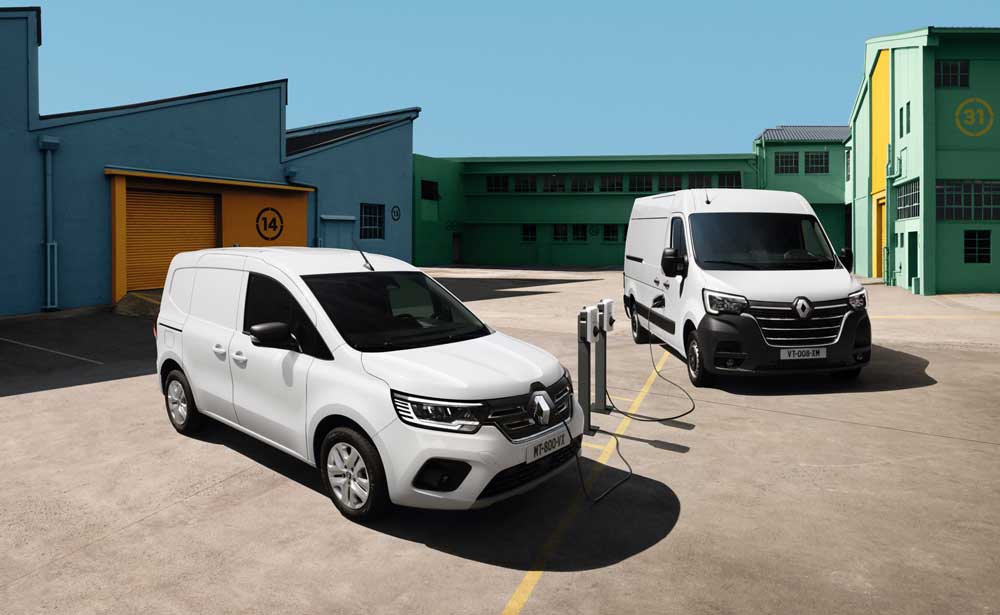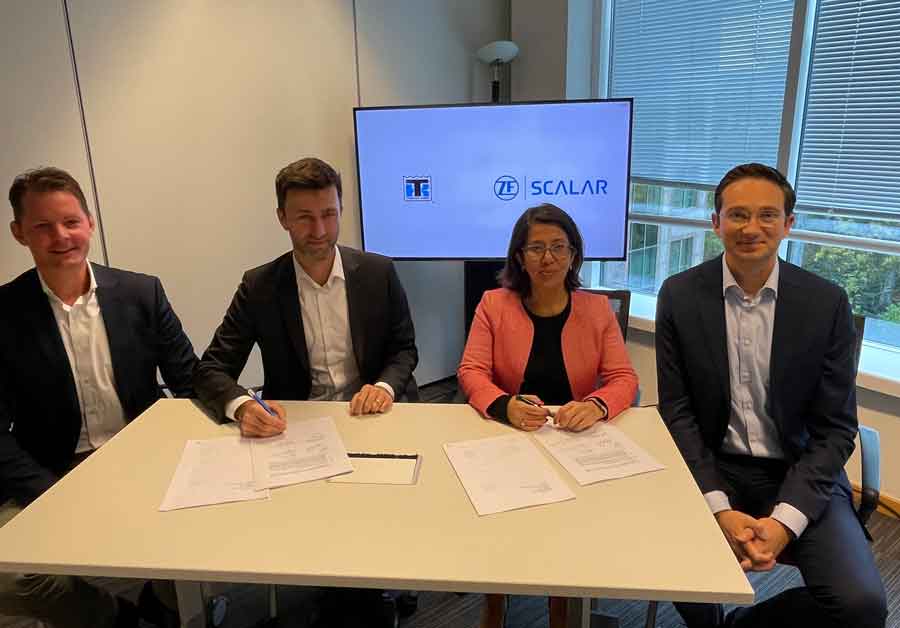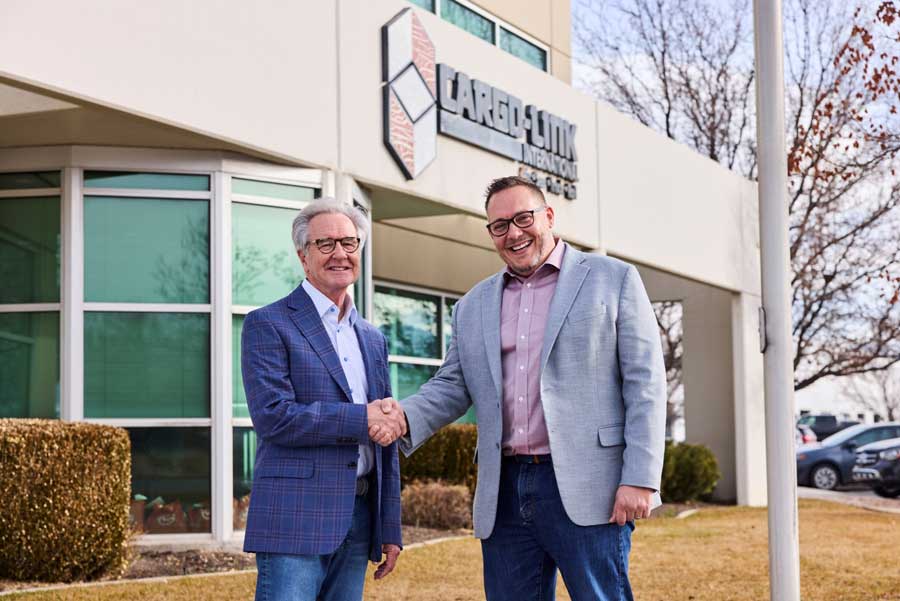“PACCAR achieved good quarterly revenues and net income in the second quarter of 2020,” said Preston Feight, chief executive officer. “PACCAR closed its factories for five weeks at the beginning of the quarter and has gradually resumed production while enhancing operating processes and procedures for employee health and well-being, manufacturing efficiency and customer satisfaction. I am very proud of our outstanding employees who delivered excellent production and distribution performance while enhancing PACCAR’s rigorous health and safety standards.”
PACCAR earned net income of $147.7 million ($.43 per diluted share) in the second quarter, compared to $619.7 million ($1.78 per diluted share) earned in the same period last year. Second quarter net sales and financial services revenues were $3.06 billion, compared to $6.63 billion achieved in the second quarter of 2019. “PACCAR’s truck production and PACCAR Parts’ aftermarket sales steadily increased as the quarter progressed. PACCAR’s quarterly profits are a direct result of its proven business model: premium trucks and transportation solutions, flexible manufacturing processes, a strong balance sheet, and rigorous cost control while maintaining R&D and capital investments that drive long-term growth,” added Feight.
PACCAR reported first half net income of $507.1 million ($1.46 per diluted share), compared to $1.25 billion ($3.59 per diluted share) earned in the first six months of last year. Net sales and financial services revenues for the first six months of 2020 were $8.22 billion, compared to $13.12 billion achieved last year.

Quarterly dividend announcement
“PACCAR is in excellent financial position, with manufacturing cash and marketable securities of $4.17 billion at June 30, 2020 and bank facilities of $3.0 billion,” shared Mark Pigott, executive chairman. The company has credit ratings of A+/A1.
PACCAR’s Board of Directors declared a regular quarterly cash dividend of thirty-two cents ($.32) per share, payable on September 1, 2020, to stockholders of record at the close of business on August 11, 2020.
Financial highlights – second quarter 2020
Highlights of PACCAR’s financial results for the second quarter of 2020 include:
- Net sales and revenues of $3.06 billion.
- Net income of $147.7 million.
- Global truck deliveries of 18,100 units.
- PACCAR Parts revenues of $823.7 million.
- PACCAR Parts pre-tax income of $151.9 million.
- Financial Services pre-tax income of $55.5 million.
- Manufacturing cash and marketable securities of $4.17 billion.
- Cash generated from operations of $934.9 million.
- Stockholders’ equity of $9.78 billion.
Financial highlights – first half 2020
Highlights of PACCAR’s financial results for the first six months of 2020 include:
- Net sales and revenues of $8.22 billion.
- Net income of $507.1 million.
- Capital investments of $308.8 million and R&D expenses of $137.5 million.
- Financial Services pre-tax income of $103.8 million.
- Cash generated from operations of $1.36 billion.
- Medium-term note issuances of $1.33 billion.

Global truck markets
“The U.S. and Canada Class 8 truck market is rebounding as state and local economies re-open,” said Mike Dozier, senior vice president. “Customers benefited from lower fuel costs, and many sectors experienced higher freight volumes and improved freight pricing as the quarter progressed. Class 8 truck industry orders in June were 28% higher than June last year.” Class 8 truck industry retail sales in the U.S. and Canada are estimated to be in a range of 160,000-190,000 trucks in 2020, though the market size and economy could be impacted if there was a resurgence of COVID-19. Peterbilt and Kenworth achieved U.S. and Canada Class 8 truck retail sales market share of 29.6% through June this year, compared to 29.1% during the same period last year.
Harry Wolters, DAF president, said, “Customer demand for fuel-efficient DAF XF, CF and LF trucks bounced back in May and June as the European economies improved.” European truck industry registrations in the above 16-tonne market are estimated to be in a range of 190,000-220,000 vehicles this year.
The South American above 16-tonne truck market is projected to be in a range of 60,000-80,000 trucks in 2020. “Customers appreciate the durability and reliability of DAF trucks in Brasil, which is one of the most demanding operating environments in the world,” said Mike Kuester, assistant vice president of South America. “DAF achieved a record 9.1% market share in the Brasil above 40-tonne truck segment in the first half of this year.”

PACCAR Parts achieves good quarterly revenues and pre-tax profit
PACCAR Parts achieved good quarterly revenues of $823.7 million in the second quarter of 2020, compared to $1.03 billion achieved in the same period last year. Second quarter 2020 pre-tax profit was $151.9 million, compared to $210.6 million achieved in the second quarter of 2019. PACCAR Parts first half 2020 revenues were $1.82 billion, compared to $2.03 billion in the same period last year. PACCAR Parts achieved pre-tax profit of $366.6 million in the first six months of 2020, compared to $418.2 million earned in the first six months of 2019. David Danforth, PACCAR vice president and PACCAR Parts general manager, said, “Some customers deferred vehicle maintenance during the quarter, which impacted parts purchases. The stronger economy and higher truck traffic in June increased demand for aftermarket services.”
Jim Walenczak, PACCAR Parts assistant general manager, noted, “PACCAR Parts has invested in its e-commerce platform for many years, which benefits our customers and dealers. PACCAR Parts’ global e-commerce retail sales increased 20% in the first half of 2020 compared to the same period last year.” PACCAR continues to add global distribution capacity to deliver industry-leading aftermarket parts availability to its customers. PACCAR’s new 250,000 square-foot distribution center in Las Vegas, Nevada and new 160,000 square-foot distribution center in Ponta Grossa, Brasil opened during the second quarter.

Kenworth, Peterbilt and DAF to produce battery-electric vehicles
Kenworth, Peterbilt and DAF continue to be global leaders in zero emissions vehicles, with customers presently field testing more than 60 battery electric, hydrogen fuel cell and hybrid trucks in North America and Europe. Deliveries of PACCAR battery electric production model trucks are expected to begin in 2021.
“Industry zero emissions powertrain deliveries are expected to be modest over the next several years due to the high cost of the technology,” said Kyle Quinn, PACCAR chief technology officer. “Medium-term demand for zero emissions vehicles will be primarily in refuse, port and local delivery applications which do not require long distance travel or a network of refueling infrastructure, as well as in locations with government mandated zero emissions.”
PACCAR has partnered with industry-leading companies to supply components and charging infrastructure that are being integrated into PACCAR’s proprietary vehicle electronics architecture.
“PACCAR is leading the industry in developing hydrogen fuel cell powered Class 8 trucks,” said Kevin Baney, PACCAR vice president and Kenworth general manager. Kenworth is delivering 10 hydrogen fuel cell Kenworth T680 trucks to several customers for field testing in the Port of Los Angeles. Kenworth integrated Toyota fuel cell technology with the Kenworth T680, and Shell provided hydrogen fuel and infrastructure. The trucks were produced at the Kenworth truck factory in Renton, Washington, and the PACCAR Technical Centers are providing extensive performance testing.
Peterbilt has developed three application-specific battery electric truck models, and many of these vehicles are accumulating test miles with customers. Jason Skoog, PACCAR vice president and Peterbilt general manager, commented, “Peterbilt Model 579EV trucks are deployed in port and regional haul applications; Peterbilt Model 220 trucks are being utilized in medium-duty pickup and delivery applications; and Peterbilt Model 520EVs are collecting and hauling refuse.”
DAF has developed a range of electric and hybrid vehicles that are undergoing extensive field testing by customers in a variety of applications in Europe. “The DAF CF Electric is used in regional haul and refuse applications; the DAF LF Electric is ideal for local delivery; and the DAF CF Hybrid is designed for long haul with the capability to also operate in cities with zero emissions requirements,” said Ron Borsboom, DAF executive director of product development.

Capital investments and research and development
PACCAR’s excellent long-term profits, strong balance sheet, and consistent focus on quality, technology and productivity have enabled the company to invest $7.1 billion in new and expanded facilities, innovative products and new technologies during the past decade. “PACCAR takes a disciplined approach to capital investments and R&D projects, investing for long-term growth in aerodynamic truck models, diesel and zero emissions powertrain technologies, advanced driver assistance systems, connected vehicle services, next-generation manufacturing and distribution capabilities. We estimate capital investments to be in a range of $525-$575 million, and research and development expenses to be in a range of $265-$295 million,” noted Darrin Siver, senior vice president.
Financial services companies achieve good results
PACCAR Financial Services (PFS) has a portfolio of 202,000 trucks and trailers, with total assets of $15.05 billion. PACCAR Leasing (PacLease), a major full-service truck leasing company, is included in this segment. Second quarter PFS pre-tax income in 2020 was $55.5 million compared to $80.3 million earned in the second quarter last year. Second quarter 2020 revenues were $360.3 million compared to $361.4 million achieved in the same quarter of 2019. For the first six months of 2020, PFS earned pre-tax income of $103.8 million compared to $164.3 million last year. First-half 2020 revenues were $744.0 million compared with $710.9 million for the same period a year ago. “PFS’ portfolio performed well during the second quarter of 2020,” said Todd Hubbard, PACCAR vice president. “The used truck market is experiencing lower vehicle resale values. PACCAR Financial is investing in worldwide used truck retail centers to sell an increased number of used trucks at retail prices, which enhances used truck sales margins. PFS recently opened used truck centers in Denton, Texas, and Prague, Czech Republic, and plans to open a used truck facility in Madrid, Spain.”
“PACCAR’s excellent balance sheet, complemented by its A+/A1 credit ratings, enables PFS to offer competitive retail financing to Kenworth, Peterbilt and DAF dealers and customers in 26 countries on four continents,” said Craig Gryniewicz, PACCAR Financial Corp. president. “We have excellent access to the commercial paper and medium-term note markets, allowing PFS to profitably support the sale of PACCAR trucks.”
PacLease celebrates 40th anniversary
PacLease is celebrating its 40th anniversary this year. PacLease has a fleet of 38,300 vehicles, and operates in 587 locations throughout the United States, Canada, Mexico, Germany and Australia. PacLease provides best in class customer service, maximum vehicle uptime and customized transportation solutions by utilizing premium quality Kenworth, Peterbilt and DAF trucks. PacLease’s transportation solutions include full truck maintenance, telematics, driver training, regulatory compliance, toll discounts and fuel management.
“PacLease customers are usually private fleets whose primary businesses rely on trucks to transport their products,” said Ken Roemer, PacLease president. “PacLease’s full service leasing solutions simplify the transportation of customers’ products, allowing customers to focus on their core business.”










